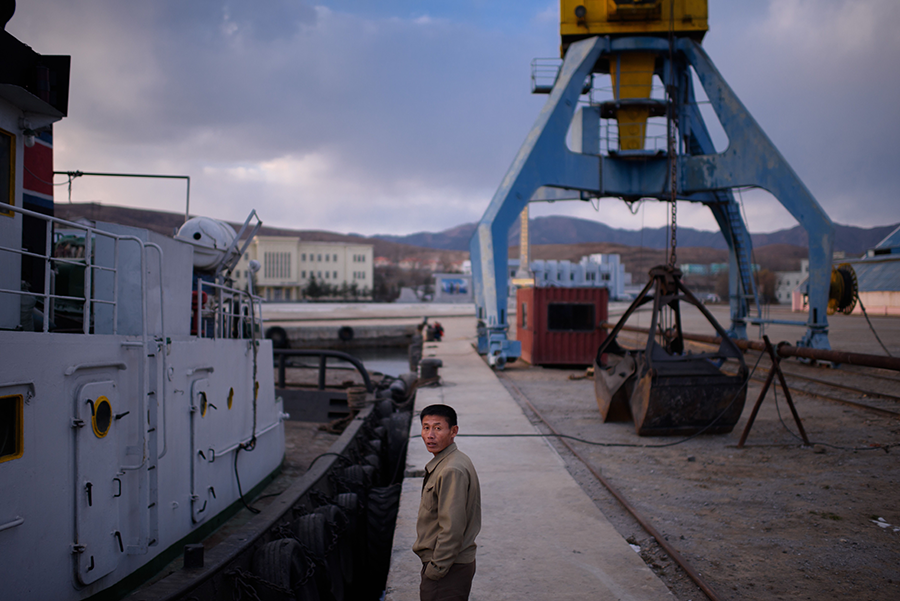"I greatly appreciate your very swift response, and your organization's work in general. It's a terrific source of authoritative information."
U.S. Says North Korea Shipped Arms to Russia
November 2023
By Kelsey Davenport
The United States accused North Korea of shipping military equipment to Russia for use against Ukraine in violation of UN sanctions.
 The U.S. mission to the United Nations said on Oct. 13 that North Korea shipped more than 1,000 containers of arms and munitions to Russia “in recent weeks.” The transfers “directly violate” UN Security Council resolutions prohibiting North Korea from exporting arms and munitions, the statement said.
The U.S. mission to the United Nations said on Oct. 13 that North Korea shipped more than 1,000 containers of arms and munitions to Russia “in recent weeks.” The transfers “directly violate” UN Security Council resolutions prohibiting North Korea from exporting arms and munitions, the statement said.
The same day, the White House released images of 300 shipping containers in Najin, a port city in North Korea near the border with Russia. It said the containers arrived in Russia via ship on Sept. 12, the day before North Korean leader Kim Jong Un met with Russian President Vladimir Putin in Russia’s far eastern region. The containers were then shipped across Russia to a city near the Ukrainian border.
U.S. National Security Council spokesman John Kirby said on Oct. 13 that the arms will help “further Russia’s illegitimate war” and that the growing military partnership between Russia and North Korea “undermines regional stability and the global nonproliferation regime.”
The announcement is the first time that the United States accused North Korea of providing large-scale assistance to Russia, despite Kim’s support for the invasion of Ukraine. Prior to Kim’s meeting with Putin in September, U.S. officials said there was no evidence of active North Korean military assistance to Russia, but they warned that Pyongyang would pay a price if it transferred arms to Moscow. (See ACT, October 2023.)
Matt Miller, State Department spokesperson, said on Oct. 18 that the United States will take “whatever steps we can to hold” North Korea to account, but did not provide details.
Kremlin spokesperson Dmitry Peskov denied that Russia received arms from North Korea. He told reporters on Oct. 17 that the United States has never provided any evidence to support the allegations. Moscow will continue building ties with Pyongyang, he said.
In a further demonstration of growing bilateral ties, Russian Foreign Minister Sergey Lavrov visited Pyongyang, where, during an Oct. 18 reception, he expressed “solidarity” with Pyongyang and gave thanks for its “principled support” of the “special military operation” in Ukraine.
Kirby said the United States is “monitoring closely” whatever assistance that Russia may provide to North Korea in return for the military assistance. Kim expressed interest in Russia’s space program during his Russia trip. He has announced ambitious plans for North Korea’s space program, but recent attempts to put a satellite into orbit have failed. (See ACT, September 2023.)
Kirby said that the United States assesses that North Korea also may be interested in fighter aircraft, equipment for producing ballistic missiles, and surface-to-air missiles.
The reports of North Korean assistance to Russia come amid U.S. joint military drills in the region that Pyongyang long has described as provocative. In early October, the U.S. aircraft carrier USS Ronald Reagan participated in a trilateral exercise with South Korea and Japan, which the state-run Korean Central News Agency (KCNA) decried as the United States “advertising” that it could “fight a war” on the Korean peninsula and “goes to prove…the U.S. scheme for a nuclear attack” on North Korea.
In an Oct. 13 statement, KCNA said the U.S. decision to introduce “various nuclear strategic assets into the Korean peninsula [when the] danger of outbreak of a nuclear war is rampant” is an “undisguised military provocation.”
South Korea’s new defense minister, Shin Won-shik, said that recent efforts to integrate South Korea’s conventional forces with U.S. nuclear deterrence forces remain the top priority for countering North Korea’s nuclear weapons.
Shin threatened swift retaliation if North Korea “carries out military provocations.” He said it is a “fantasy” to believe that South Korean goodwill can “transform North Korea” and called for immediate, strong punishment in response to any North Korean military provocations. Seoul must punish Pyongyang “until the end” to break the “enemy’s will and capacity” to threaten South Korea, he said.
South Korean officials said in October that North Korea halted its five-megawatt electric nuclear reactor at the Yongbyon complex, likely to extract the spent fuel.
North Korea separates plutonium from the spent reactor fuel to use in nuclear weapons.
On Sept. 29, International Atomic Energy Agency member states passed a resolution at this year’s general conference urging North Korea to “halt all such activities and any efforts” to expand nuclear activities “aimed at the production of fissile material.” The resolution expressed support for diplomatic engagement and dialogue with Pyongyang to “work toward complete denuclearization of the Korean peninsula.”
